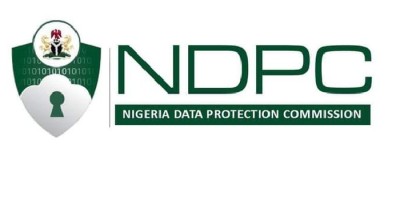Trademarking “Yoruba”: Illegality Or Mere Cultural Appropriation?
Posted on Mon 5 Jul 2021
- Download Resource
On May 23, 2021, Gbemisola Isimi, the founder of CultureTree, a UK based organization which runs a parents and toddlers play group called Yoruba Stars, where children are taught the Yoruba language, reported on social media that Timbuktu Limited, an outdoor clothing brand based in Northern England, had successfully registered the word ‘Yoruba’ as a trademark in the UK Intellectual Property Office (“UK IPO”) with respect to clothing, in 2015. It was reported that upon an attempt by CultureTree to register the trade mark Yoruba Stars, a name given to all students in the class, with the UK IPO, an opposition was filed against the registration by Timbuktu Limited.[1] Furthermore, it was reported that Timbuktu Limited offered to license the trademark to CultureTree for a fee. Consequently, CultureTree took to social media, claiming that Timbuktu’s registration of the trademark Yoruba, was cultural appropriation.
The post on social media went viral and quite a number of news outlets reported on the matter, including CNN and BBC. In a press statement subsequently published on CultureTree’s website, it was stated that Timbuktu Limited had withdrawn its opposition at the UK IPO against the registration of Yoruba Stars and the issue was being resolved. In addition to the steps taken by Timbuktu to resolve the matter, it appears that the company closed down all of its social media accounts, including its website and reportedly filed an application to surrender the trademark ‘Yoruba’.
The issue with CultureTree and Timbuktu Limited sparked up debates surrounding the legality or otherwise of individuals or companies trademarking names of ethnic groups and using same to promote their products, brands and/or businesses. Whilst some argue that the registration of the trademark should not have been allowed by the UK IPO, due to the fact that the word Yoruba connotes a geographical origin, others have argued that this is merely a case of cultural appropriation and in so far as Timbuktu Limited met all the requirements for filing, without any opposition from the public, and to the extent that the UK trademark registration is based on the first to file principle, Timbuktu Limited has a legal right to the exclusive use of its trademark within the United Kingdom.
Under the UK Trade Marks Act of 1994, (the “UK Act”)[2] a trademark is defined as any sign, consisting of words (including personal names), designs, letters, numerals, colours, sounds or the shape of goods or their packaging, capable of being represented in the register in a manner which enables the registrar and other competent authorities and the public to determine the clear and precise subject matter of the protection afforded to the proprietor. Simply put, trademarks are words, names, symbols, or designs, used in commerce to distinguish the products of an undertaking from those of other undertakings.
Where a mark does not have a distinctive word, logo, picture or other sign that clearly distinguishes it from other goods or services, the trademark will not be registered by the UK IPO. Specifically, section 3(1)(c) of the UK Act provides that “a trade mark shall not be registered if it is of such a nature as to deceive the public (for instance as to the nature, quality or geographical origin of the goods or service)”. Therefore, where the trademark is likely to mislead the public to thinking that a trademark is from or affiliated with a certain geographical origin, it shall be an absolute ground for refusal.
The question then is what happens when a trademark that ought not have been registered, scales through to successful completion?
In the UK, upon filing an application to register a trademark, same is examined to ensure compliance with statutory requirements. Once the examination stage is completed, the application is then published in the Trade Marks Journal, which gives third parties the option to file an opposition against its registration. Ideally, this may have been the appropriate stage for CultureTree or any other interested parties to file an opposition against the registration of Yoruba as a trademark by Timbuktu Limited, a company with no affiliations to the Yoruba culture, based on their own unregistered rights and/or Timbuktu’s bad faith. However, to the extent that the application passed the examination stage and no oppositions were filed against the registration, the UK IPO successfully registered the mark Yoruba in the name of Timbuktu Limited for use, to the exclusion of all others in the UK, subject to their authorization.
Notwithstanding the above, section 46(1)(d) of the UK Act provides that the registration of a trademark may be revoked where it is liable to mislead the public, particularly as to the nature, quality or geographical origin of those goods or services. It may be argued that where Timbuktu Limited, being a clothing retailer, uses the Trademark on its products, it would reasonably mislead the public to believe that the company is affiliated with the Yoruba language, a language spoken most prominently in Southwestern Nigeria or one of the three largest ethnic groups in Nigeria. Thus, grounds for revocation may be said to have arisen and an application for revocation may be made by any person, to either the Registrar of the IPO or to the Court.
In the event that this registration was attempted at the Nigerian Trade Marks Registry, the chances of successfully registering the trademark, even where no opposition is filed against the application, are slim to none. In any case, it is highly unlikely that the Registrar of Trademarks would accept the mark for publication in the Trade Marks Journal in the first place. In the unlikely event however that the registration of the trademark “Yoruba” or the name of any other ethnic group for that matter somehow slips through the cracks and is registered, a somewhat simple solution to rectify this would be to invoke the provisions of Section 22 (1)(a) of the Nigerian Act, on the basis that the trademark “Yoruba” was accepted in error. This section provides that where an application has been accepted and the application has not been opposed and the statutory window of opposition has closed, the Registrar shall, unless the Application has been accepted in error, register the trademark. To the extent that “Yoruba”, being one of the largest ethnic groups in Nigeria of circa 30 million people, falls under a non-registrable criterion under Section 9 of the Nigerian Act, any interested party may petition the Registrar to remove the entry from the Register. The prescribed format for the petition would be an application made on Form 27, accompanied by a statement setting out fully the nature of the applicant’s interest, the facts upon which their case is based and the relief they seek.
Ultimately, whilst the backlash and public outrage was sufficient to propel the owners of the contentious trademark in this matter to surrender the trademark, there may not always be an outcry of this magnitude to spur other applicants to surrender their duly registered trademarks, which may be names of ethnic groups/minorities, languages etc. in Nigeria or other foreign countries. This is why it is pertinent that we are all aware of existing individual and collective rights as well as the legal remedies available in such circumstances.
The essence of intellectual property laws is to protect intellectual property. Although the first to file trademark regime is applicable in Nigeria (i.e. applicants that are first to apply for registration of their marks are assigned trademark rights and priority, irrespective of whether the Applicants have used the marks in commerce or whether the marks were previously used by others), the system should not be exploited in order to disenfranchise any individual or even a group of people or infringe on the rights of others.
DISCLAIMER: This article is intended to provide a general guide to the subject matter and does not by itself constitute a legal advice to readers. Specialist advice should be sought about readers’ specific circumstances.
For further information on trademarks, kindly contact our Intellectual Property and Technology Practice Group at ipgroup@banwo-ighodalo.com
[1] https://culturetree.co.uk/press-statement-yorubaisnotforsale/
[2] Implementing the EU Directive No. 89/104/EEC













